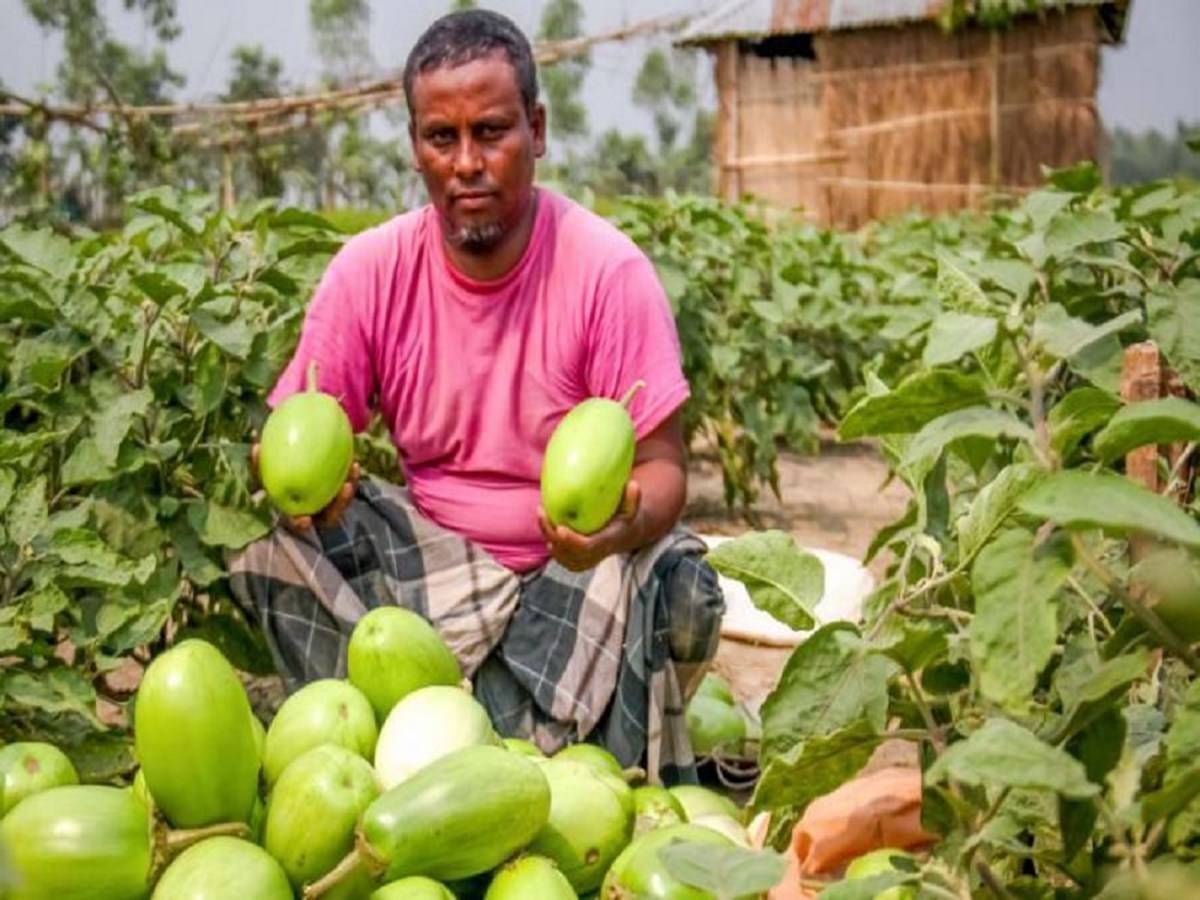
Within seven years since Bangladesh approved its first genetically modified crop — insect-resistant eggplant (Bt brinjal), the number of farmers growing it has increased from just 20 to well over 60,000. This figure includes only farmers who have obtained seeds from formal sources. The actual number of farmers growing Bt eggplant is likely to be larger as some farmers use seeds they saved from the previous season or share seeds with other farmers.
The high rate of adoption can well be justified. Farmers have benefited from the technology by getting higher yields and savings due to the reduced use of pesticides to control the eggplant fruit and shoot borer (EFSB). Reduced use of pesticides has also helped in providing health benefits to the farmers.
The question now is, can Bangladesh sustain this growth and make the technology durable? As with any new technology, stewardship is of vital importance, and this is true for Bt eggplant. While stewardship begins with quality seed, other practices around insect resistance management (IRM) are equally vital for the long-term sustainability of Bt eggplant technology in Bangladesh. Not to mention the surgency of secondary pests that may now prove to be a major threat, as has been the case earlier in India during the Bt cotton cases, wherein the mealy bug took over the attention for quite some time.
Farmer training on stewardship and field compliance are an essential to the sustainable production of this valuable product in Bangladesh and needs to be continued. The eggplant fruit and shoot borer can develop resistance against the current Bt brinjal varieties, a natural process that can pose a challenge in the future if not addressed now. One way to delay the development of resistance in the insect population is by planting a refuge of non-Bt eggplant around the Bt field to give the insects an alternative food source. Such seeds are normally provided within the seed packs over here in India with respect to Bt cotton, the only GM crop approved in the country.
However, it may not pose a major challenge in the near future as less than 10 percent of the country’s eggplant growing area is under Bt eggplant cultivation, so the non-Bt eggplant fields provide plenty of refuge.
The Bt eggplant varieties currently approved, released and adopted in Bangladesh rely on a single gene product (Cry1Ac) to repel the EFSB. Although the technology is available, a second generation of Bt eggplant carrying a two-Bt gene product is not currently under development for Bangladesh. If the EFSB develops resistance against the single gene product, with no second-generation product in the pipeline, it could jeopardize Bt technology and its benefits.
Bangladesh needs to takes some strategic steps to start developing second generation (two-gene) Bt eggplant varieties. Research and field experience have demonstrated that pyramiding multiple Bt genes is the most effective tactic to delay resistance in insect pupations that can render the technology less effective or useless. It is imperative to invest in the development of second generation Bt eggplant carrying two Bt genes with different modes of action. One would also like to explore the acceptability in the export market of just agri produce of such nature.
Strengthening the biosafety policy environment will play a major role in sustaining the Bt technology while creating a path for other GM crops that are already in the pipeline. A predictable regulatory system is needed to review applications efficiently and at a faster pace. By adopting an event-based registration system for GM products, regulators in Bangladesh will be able to approve varieties suited for a particular region at a more rapid rate. Numerous studies have shown that this process does not compromise the efficacy or safety of a product.
Background
Bt eggplant technology in Bangladesh is managed by the public sector. The Bangladesh Agricultural Research Institute (BARI) is responsible for developing the technology and maintaining breeder seeds. The Bangladesh Agricultural Development Corporation (BADC) is charged with large scale foundation seed production for distribution to farmers, while BARI and the Department of Agricultural Extension (DAE) conduct the extension and outreach activities. A coordinated effort (pre-season, in-season and post-season) is required between the three independent public agencies to ensure farmers get high quality seed and this interagency coordination can be quite challenging.
Encouraging the involvement of the private sector in the development, production and stewardship of GM products could be a solution to this problem. The private sector in Bangladesh could be a significant partner in the country’s long- term development of Bt eggplant and future GM crop innovations. The private sector has been playing an important role in the Bangladesh seed industry, particularly in increasing vegetable production. The good quality vegetable hybrids and other improved varieties developed by the private sector have helped farmers improve their yield, and therefore the economics of vegetable cultivation. The private sector is considered to be efficient at developing and scaling quality seed. Once the Bt eggplant technology is made available to the private sector for commercial multiplication, the private sector may readily move forward to develop their own Bt varieties, including hybrids.
By building on its solid foundation with Bt eggplant and taking the right strategic steps, Bangladesh can make the technology sustainable and durable, which will pave the way for other GM products and ensure the region can continue to enjoy biotechnology’s positive impacts in the future.
However, the question remains, Is illegal sale and availability of Bt brinjal in India due to the close proximity of Bangladesh possible. If so, are there any health concerns reported. Another issue yet to be understood.
Source - https://allianceforscience.cornell.edu/








